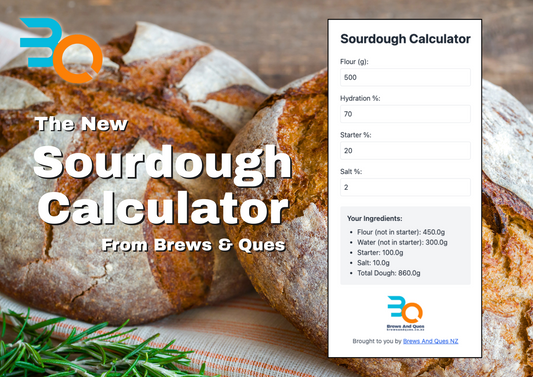Why Kombucha Is So Popular
Kombucha has made its way from health food stores into mainstream supermarkets, cafés, and home kitchens across the world. What was once a mysterious “hippie drink” is now a billion-dollar industry. Fans swear by it for improved digestion, extra energy, and even weight loss. But does science actually support these claims? The answer is both yes and no. Let’s look at the facts.
What’s in a Glass of Kombucha?
Kombucha starts with sweetened tea, usually black or green, which is fermented with a SCOBY (Symbiotic Culture of Bacteria and Yeast). Over one to two weeks of fermentation, the SCOBY consumes most of the sugar and tea compounds and produces:
-
Probiotics – beneficial live microorganisms
-
Organic acids – acetic acid, gluconic acid, lactic acid
-
B vitamins – particularly B1, B2, B6, B12 in small amounts
-
Polyphenols and antioxidants – carried over from the tea
The exact composition varies widely depending on brewing method, fermentation time, and whether it’s homemade or commercial.

Probiotics and Gut Health
The strongest health claim for kombucha is its probiotic content. Probiotics are live microorganisms that can positively influence the gut microbiome — the ecosystem of bacteria in your intestines that impacts digestion, immunity, and even mental health.
-
Potential Benefits: Many people report that kombucha eases bloating, constipation, and indigestion. Some studies suggest fermented foods in general promote a more diverse gut microbiome.
-
The Caveat: Unlike yoghurt or kefir, kombucha has not been studied extensively in humans. We know it contains beneficial bacteria and yeasts, but we don’t yet know how many survive digestion or exactly how they interact with the body.
Antioxidants and Anti-Inflammatory Compounds
Kombucha made with green tea contains catechins and other antioxidants. These compounds help neutralise free radicals, which are unstable molecules linked to cell damage, ageing, and disease. Antioxidants are associated with reduced inflammation and protection against chronic conditions like heart disease and diabetes.
Some lab studies suggest kombucha may have stronger antioxidant properties than tea alone, thanks to the fermentation process. While promising, more research is needed in humans.
Blood Sugar, Heart Health, and Metabolism
Animal studies have shown kombucha may help regulate blood sugar and cholesterol levels. The acetic acid produced during fermentation is similar to what’s found in vinegar, which has been shown to help slow down digestion of carbohydrates and moderate blood sugar spikes.
However, kombucha is not a medical treatment. Anyone with diabetes or heart conditions should view it as a supportive beverage, not a substitute for medication or lifestyle changes.

Energy and Mood
Kombucha contains trace amounts of caffeine (from the tea) and B vitamins, which may contribute to increased alertness and reduced fatigue. Some drinkers also report mood improvements, possibly linked to the gut-brain connection. A healthy microbiome has been associated with lower stress and better mental well-being — but kombucha is only one piece of that puzzle.
Detox and Immune Claims — Fact or Fiction?
Kombucha is often marketed as a “detox” drink. While it does support the liver with compounds like glucuronic acid, it doesn’t magically flush toxins from the body. Your liver and kidneys already handle detoxification efficiently. Drinking kombucha can be a healthy addition to your lifestyle, but it’s not a miracle cleanser.
As for immunity, a stronger gut microbiome does correlate with better immune resilience. Regular consumption of probiotic foods, including kombucha, may support this — but it won’t make you immune to colds or viruses.
Risks and Precautions
Kombucha is not suitable for everyone:
-
Pregnant and breastfeeding women – due to its alcohol trace (0.5–2%) and microbial content.
-
Children – for the same reason.
-
Immunocompromised individuals – because unpasteurised kombucha contains live microbes.
-
People with acid reflux or digestive sensitivity – kombucha’s acidity may worsen symptoms.
Homemade kombucha, if brewed improperly, can also pose risks of contamination or excessive alcohol production. Hygiene and monitoring are crucial.

The Bottom Line
Kombucha isn’t a cure-all, but it does have measurable health benefits:
-
Provides probiotics for gut health
-
Offers antioxidants to reduce oxidative stress
-
May support blood sugar balance and heart health
-
Gives a natural alternative to soda with lower sugar
Enjoy it as part of a balanced diet, ideally one glass a day. Science supports some of its perks, but moderation and common sense are key.
Ready to Experience the Benefits for Yourself?
If you’d like to enjoy all the health perks of kombucha at home, the first step is having a quality SCOBY. At Brews And Ques NZ, we stock Symbiota Organic SCOBYs, carefully grown for reliability and flavour. Choose from the Symbiota Organic Jun Kombucha SCOBY (fermented with green tea and honey for a lighter, floral taste) or the Symbiota Organic Kombucha SCOBY Culture (the classic black tea version loved worldwide). With these, you’ll be brewing gut-friendly kombucha in no time.










